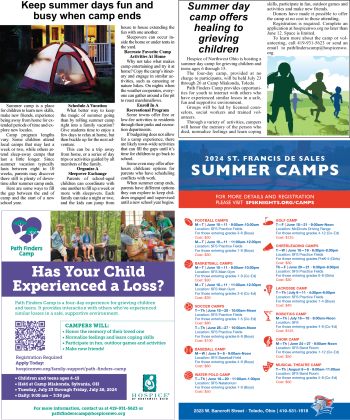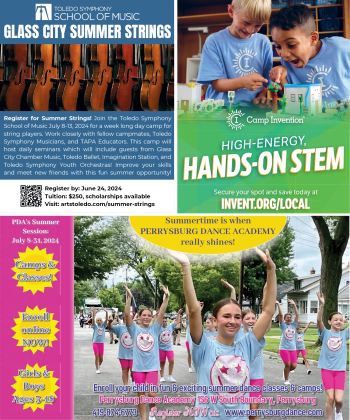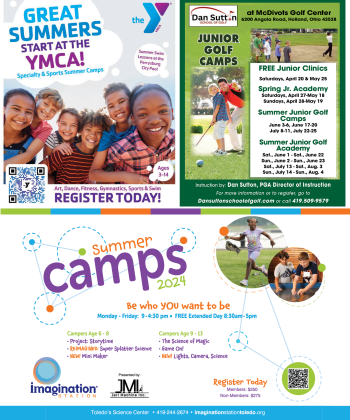Ruslan Slutsky said when he was a kid, summer camp was “We went outside in a field and played.” But now, wow—“Summer camps have evolved tremendously,” he said. Summer camps are now more varied and more important than ever in youths’ academic and personal development.
Mr. Slutsky has a PhD and is a professor in the Department of Teacher Education in the Judith Herb College of Education at the University of Toledo. He teaches courses in early childhood education and–fittingly based on his recollection of being a kid–children’s play.
In the field—pun intended—of summer camps, he’s noticed changes over the years, while realizing the continuing balance of childhood development and retention of academic lessons learned over the preceding school year.
Researchers have found that in the roughly three-month hiatus from classes, students forget some of the knowledge they gained, an experience termed “summer learning loss” or “summer slide.”
“Summer slide is real,” Mr. Slutsky said. “Kids do lose momentum,” he said, because they usually aren’t involved in any kind of academic activity.
“Literacy is easy to keep up with, but kids have to read,” he said. Mathematics less so. “Math deteriorates when you don’t use it,” he continued. Over the summer, children usually don’t engage with math-centered activities. “Kids don’t sit down and do math worksheets,” he said. “Regression in academics is not a new phenomenon.”
What is new over the past several years is the scope of available summer camps.
“Today, summer camps are revitalized and specialized,” he said. “There are computer camps, music camps, art camps. If parents want academic camps for math, the best options are STEM camps,” he said, referring to science, technology, engineering, and math. “There are robotic camps, some of which focus on science and math and doing experiments. “There’s a summer camp for any kid,” he continued. Whatever the child has an interest in, “there likely will be a camp that meets that need.”
Aside from stemming the academic slide, summer camps have value to youths in another sense. “Summer camps are great, but less in the academic experiences and more about social development and friendships,” Mr. Slutsky said. “It’s a fun-based experience. To be outside and engage with others, that’s as important as the academic piece.
“Kids need a mental break,” he said. “School for kids is very stressful. For a lot of kids, the rigor of school has become stressful—worrying about doing well, social issues, their peers. There’s a lot of pressure on kids today that there wasn’t before.
“Camps are a great space for kids to meet new kids, to socially interact with different peers from what they may have in school.” He said at camp, youths learn how to collaborate and how to resolve conflict—“important skills to use as middle schoolers and in high school and college and as adults.”
Parents can review summer camp options and choose something for their child, “but more importantly it depends on what the child wants. If the parents say, ‘You’re going to computer camp,’ and the child says, ‘That’s not what I want,’ the child will have a negative experience,” Mr. Slutsky said. “You don’t want to stick them in something that is convenient for a parent. Put them where they’ll excel and really want to learn.”
While there’s much to consider in terms of academics and social development, he reminds, “Camps are a great idea. Kids go to a fun place, get active, go outside. It’s a great experience for them to be happy and socially engaged. Summer camps provide fun so they can go back to being a kid.”









